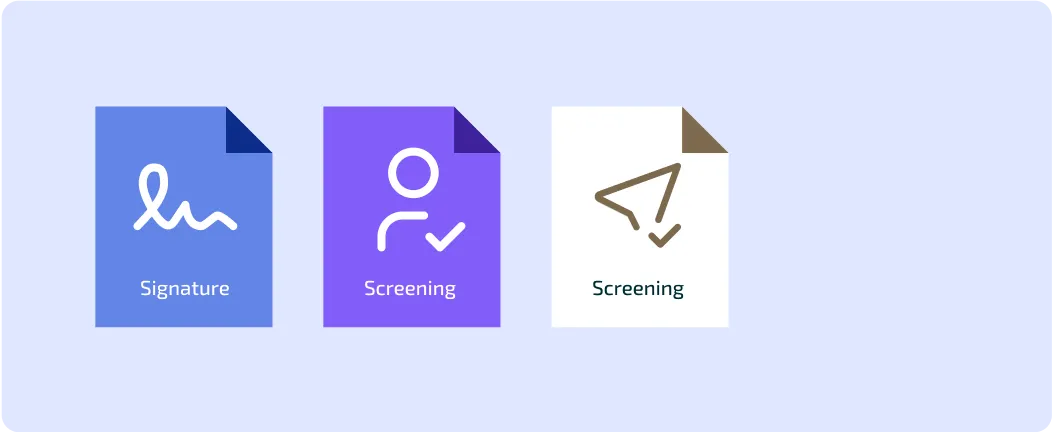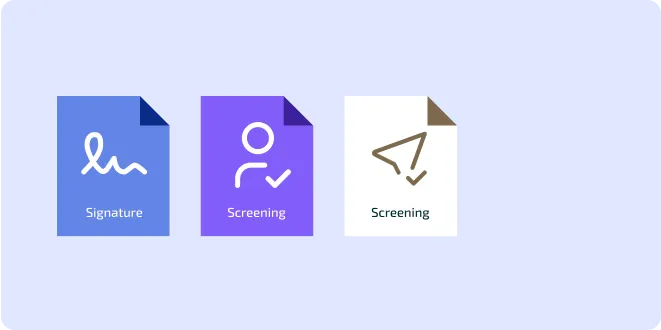.webp)
Published on
March 18, 2025
Understanding Anti-Money Laundering & its Significance
In this story
.png)
Comply quickly with local/global regulations with 80% less setup time
.svg)
.svg)
With increasing incidents of illicit financial activities, it becomes imperative for businesses and institutions to understand the intricacies of AML frameworks and adopt robust preventive strategies.
In this article, we will delve into the depths of AML, exploring its core concepts, regulatory frameworks, and best practices to ensure compliance and safeguard against money laundering risks.
What is Anti-Money Laundering (AML)?
Anti-Money Laundering refers to a set of laws, regulations, and procedures designed to prevent the process of concealing the origins of illegally obtained funds. The primary objective of AML measures is to detect and deter money laundering, terrorist financing, and other related financial crimes. By implementing effective AML practices, organizations can minimize the risks associated with illicit financial activities and contribute to maintaining the integrity of the global financial system.
Key Elements of Anti-Money Laundering (AML)
To gain a comprehensive understanding of AML, it is crucial to familiarize ourselves with the key elements that form the foundation of AML frameworks:
1. Customer Due Diligence (CDD)
Customer Due Diligence is a fundamental component of AML practices. It involves the process of identifying and verifying the identities of customers, understanding the nature of their business, and assessing the potential risks they pose. By conducting thorough CDD procedures, organizations can effectively evaluate the legitimacy of customer transactions and identify any suspicious activities promptly.
2. Risk Assessment
Risk assessment plays a pivotal role in AML frameworks. It involves evaluating the inherent risks associated with different customers, countries, and types of transactions. By conducting a comprehensive risk assessment, organizations can implement targeted risk mitigation strategies and allocate resources efficiently to combat money laundering threats effectively.
3. AML Compliance Programs
Implementing robust AML compliance programs is crucial for organizations to fulfill their legal and regulatory obligations. These programs encompass policies, procedures, and internal controls designed to prevent money laundering and ensure compliance with applicable AML laws and regulations. Regular monitoring, reporting, and ongoing training are essential components of an effective AML compliance program.
4. Suspicious Activity Reporting (SAR)
The timely reporting of suspicious activities is a crucial element in the fight against money laundering. Organizations must establish mechanisms to identify and report any transactions or behaviors that raise suspicion. By promptly reporting such activities to the relevant authorities, organizations contribute to the collective effort of combating financial crimes.
Regulatory Frameworks for Anti-Money Laundering (AML)
Various regulatory bodies and international organizations have established frameworks and guidelines to combat money laundering globally. These frameworks provide the necessary legal and operational guidelines to assist organizations in implementing effective AML practices. Some notable regulatory frameworks include:
1. Financial Action Task Force (FATF)
The Financial Action Task Force is an intergovernmental organization that sets standards and promotes the implementation of AML measures worldwide. FATF's recommendations provide a comprehensive framework for countries and financial institutions to combat money laundering and terrorist financing effectively.
2. Bank Secrecy Act (BSA) - United States
The Bank Secrecy Act of the United States is a key piece of legislation aimed at combating money laundering and other financial crimes. It imposes various obligations on financial institutions, including the establishment of robust AML programs, customer identification procedures, and suspicious activity reporting.
3. European Union's Anti-Money Laundering Directives (AMLD)
The European Union's Anti-Money Laundering Directives outline the AML obligations for entities operating within the European Union. They establish guidelines for customer due diligence, risk assessment, and reporting suspicious activities, among other requirements.
Comply quickly with local/global regulations with 80% less setup time
.svg)
.svg)
Regulatory Frameworks for Anti-Money Laundering (AML) in Middle East
Here are some regulatory bodies for Anti-Money Laundering (AML) in the Middle East.
Saudi Central Bank (SAMA) AML Regulations:
SAMA has implemented AML regulations that govern the financial sector in Saudi Arabia. These regulations cover areas such as customer due diligence, suspicious transaction reporting, and compliance requirements for banks and other financial institutions.
Central Bank of the UAE AML Regulations:
The Central Bank of the UAE has issued AML regulations that outline the obligations of financial institutions operating in the UAE. These regulations cover customer due diligence, record-keeping, reporting of suspicious transactions, and internal controls.
Qatar Central Bank AML Regulations:
The Qatar Central Bank has established AML regulations that apply to banks and financial institutions operating in Qatar. These regulations focus on customer due diligence, reporting of suspicious transactions, and the role of compliance officers within financial institutions.
Central Bank of Bahrain AML Regulations:
The Central Bank of Bahrain has implemented AML regulations to combat money laundering and terrorist financing in the country. These regulations cover areas such as customer due diligence, record-keeping, and reporting of suspicious transactions.
Best Practices for Effective Anti-Money Laundering (AML)
Implementing effective AML practices requires a comprehensive approach and adherence to industry best practices. Some key recommendations for organizations to enhance their AML frameworks include:
1. Know Your Customer (KYC)
Implement robust KYC procedures to verify the identities of customers, assess their risk profiles, and monitor their transactions for suspicious activities. This includes verifying relevant identification documents and conducting ongoing monitoring of customer behavior.
2. Ongoing Monitoring and Reporting
Establish mechanisms to continuously monitor customer transactions and behavior. Implement automated monitoring systems to detect patterns, anomalies, and suspicious activities promptly. Develop a clear process for reporting suspicious transactions to the appropriate authorities in a timely manner.
3. Employee Training and Awareness
Regularly train employees on AML policies, procedures, and emerging trends in money laundering techniques. Foster a culture of compliance within the organization by promoting awareness and understanding of AML risks and the consequences of non-compliance.
4. Utilizing Technology
Leverage advanced technologies, such as artificial intelligence and machine learning, to enhance the effectiveness and efficiency of AML processes. Implement transaction monitoring systems, data analytics tools, and robust risk assessment frameworks to strengthen AML capabilities and gain efficiency.
Conclusion
In conclusion, Anti-Money Laundering (AML) measures are crucial for organizations to combat the rising tide of illicit financial activities. By implementing robust AML frameworks, organizations can protect themselves from money laundering risks, ensure compliance with regulatory requirements, and contribute to the overall integrity of the global financial system. It is essential for businesses to stay up-to-date with evolving AML regulations, adopt best practices, and leverage technology to stay ahead of the ever-evolving landscape of financial crimes.
Comply quickly with local/global regulations with 80% less setup time
.svg)
.svg)

How Aseel reduced onboarding time by more than 87% using FOCAL
Learn how FOCAL empowered Aseel to achieve new milestones.
.svg)
.svg)
Mastering Fraud Prevention: A Comprehensive Guide for KSA and MENA Businesses
51% of organizations fell victim to fraud in the last two years, don't be caught off guard, act proactively.
.svg)
.svg)
Featured blog posts





AI-Driven Precision in Fraud Risk and AML Compliance
.svg)
.svg)

.svg)
.png)




.svg)


.webp)


.webp)
.webp)


.svg)








%20(1).webp)
Comments
Leave a Reply
Comment policy: We love comments and appreciate the time that readers spend to share ideas and give feedback. However, all comments are manually moderated and those deemed to be spam or solely promotional will be deleted.